Educational Materials
-

Infographic: Conserving 30% of Indonesian Seas by 2045 through MPAs and OECMs
-

Lease Islands MPA Learning Site
-
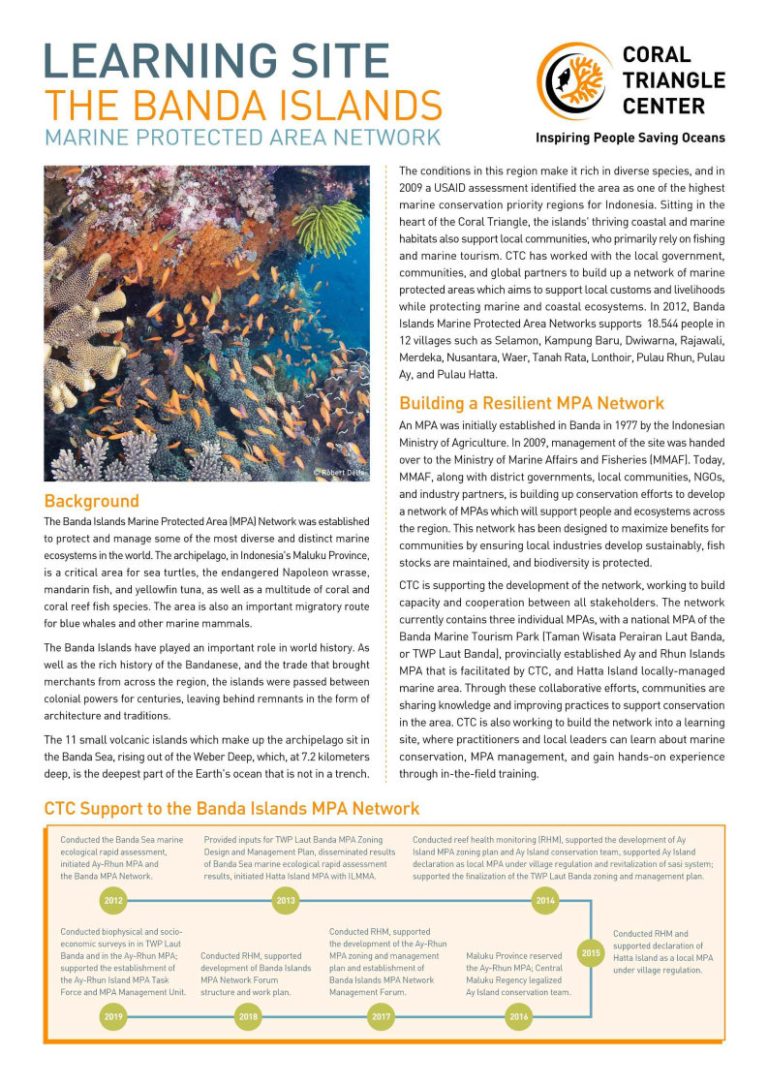
Learning Site The Banda Islands Marine Protected Area Network
-
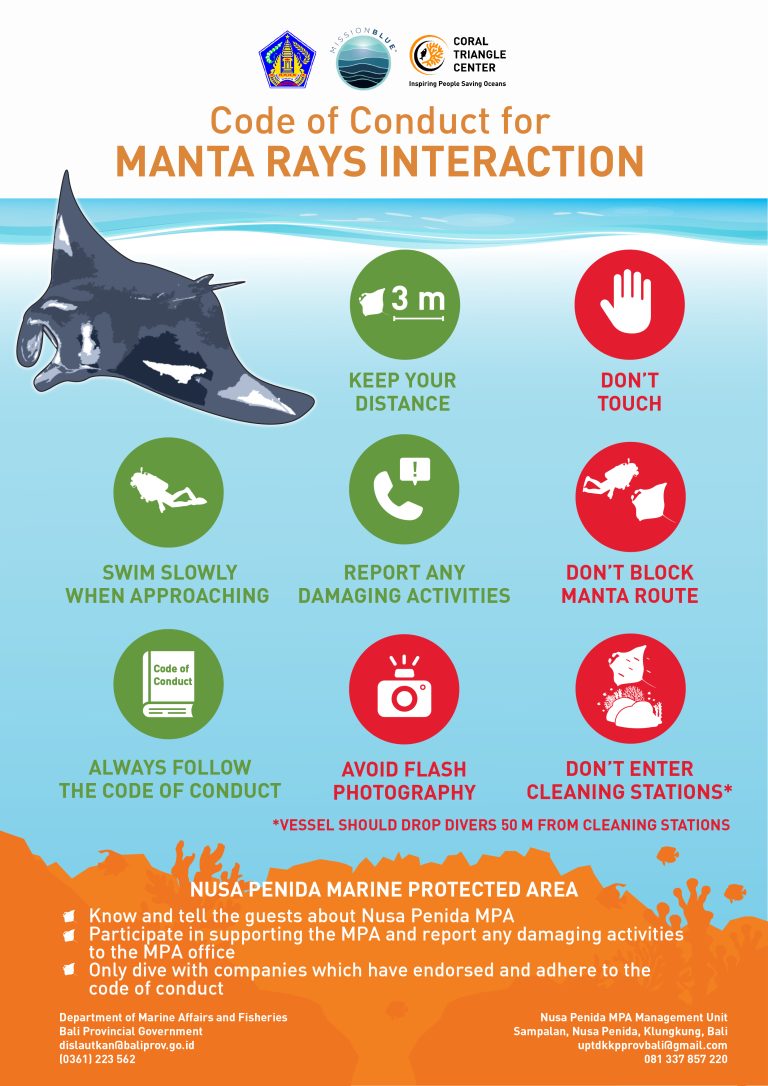
Poster Code of Conduct Manta Rays-English
-
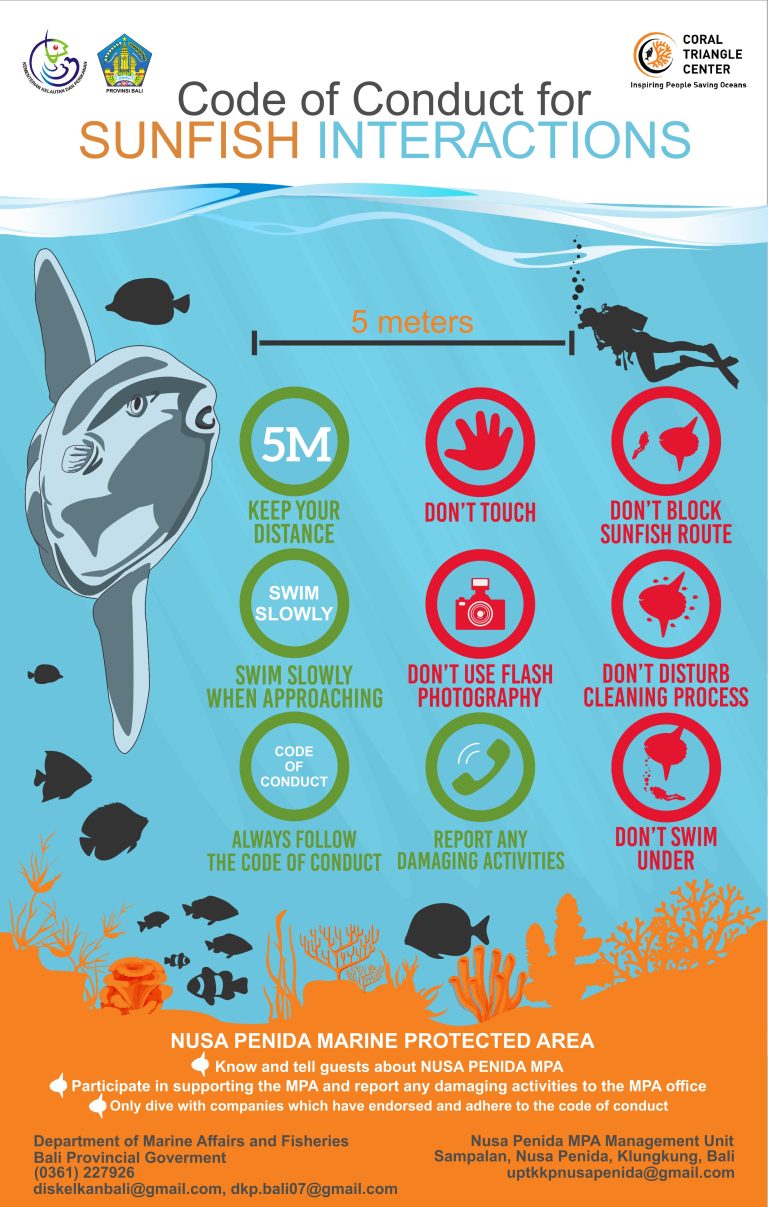
Code of Conduct for Sunfish Interactions
-
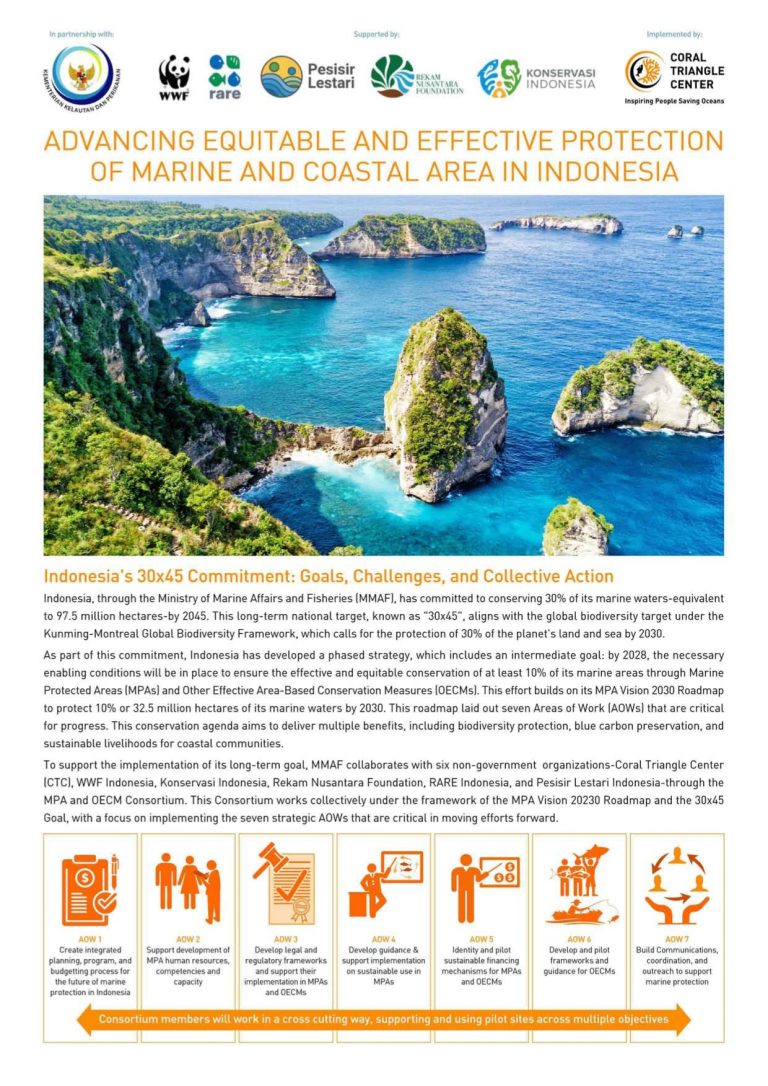
Advancing Equitable and Effective Protection of Marine and Coastal Area in Indonesia
Scientific Publications
-
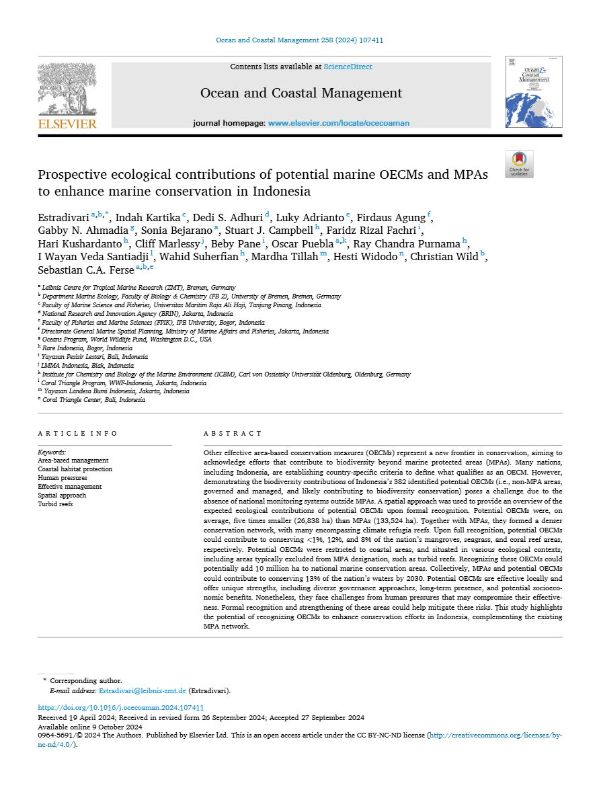 Prospective Ecological Contributions of Potential Marine OECMs and MPAs to enhance marine conservation in Indonesia
Prospective Ecological Contributions of Potential Marine OECMs and MPAs to enhance marine conservation in IndonesiaThis paper explores the potential contribution of Other Effective Area-Based Conservation Measures (OECMs) in Indonesia to the national marine conservation network, alongside existing Marine Protected Areas (MPAs). With over 382 potential OECMs identified, the study uses a spatial approach to assess their expected ecological value, as national monitoring systems are currently absent outside MPAs. The paper highlights the unique strengths of OECMs, such as diverse local governance and socioeconomic benefits, but notes they face challenges from human pressures. It concludes that formally recognizing and strengthening these areas is a powerful way to complement the MPA network and significantly enhance conservation efforts in Indonesia.
Year:
2024
-
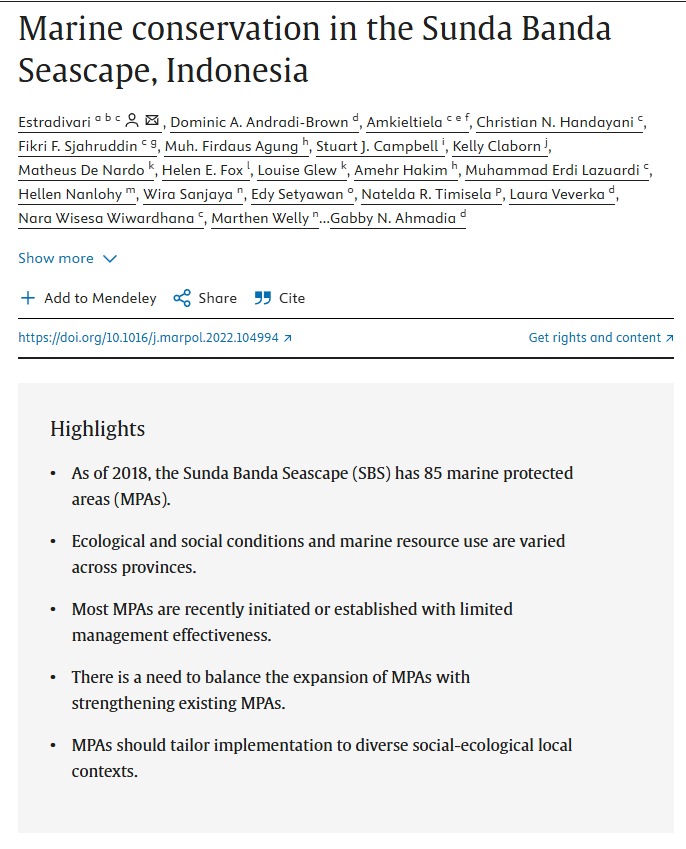 Marine Conservation in the Sunda Banda Seascape, Indonesia
Marine Conservation in the Sunda Banda Seascape, IndonesiaThis paper provides the first comprehensive overview of the status and trends of Marine Protected Areas (MPAs) in the Sunda Banda Seascape (SBS), Indonesia, a global epicenter for marine biodiversity. The study assesses progress across several key dimensions, such as coverage and protection, ecological conditions, marine resource use and threats, as well as management and governance that heavily influenced MPAs and its management. The paper concludes that effective and equitable marine conservation in the SBS requires balancing the expansion of MPAs with strengthening their management effectiveness and integrating diverse local social-ecological contexts.
Year:
2022
-
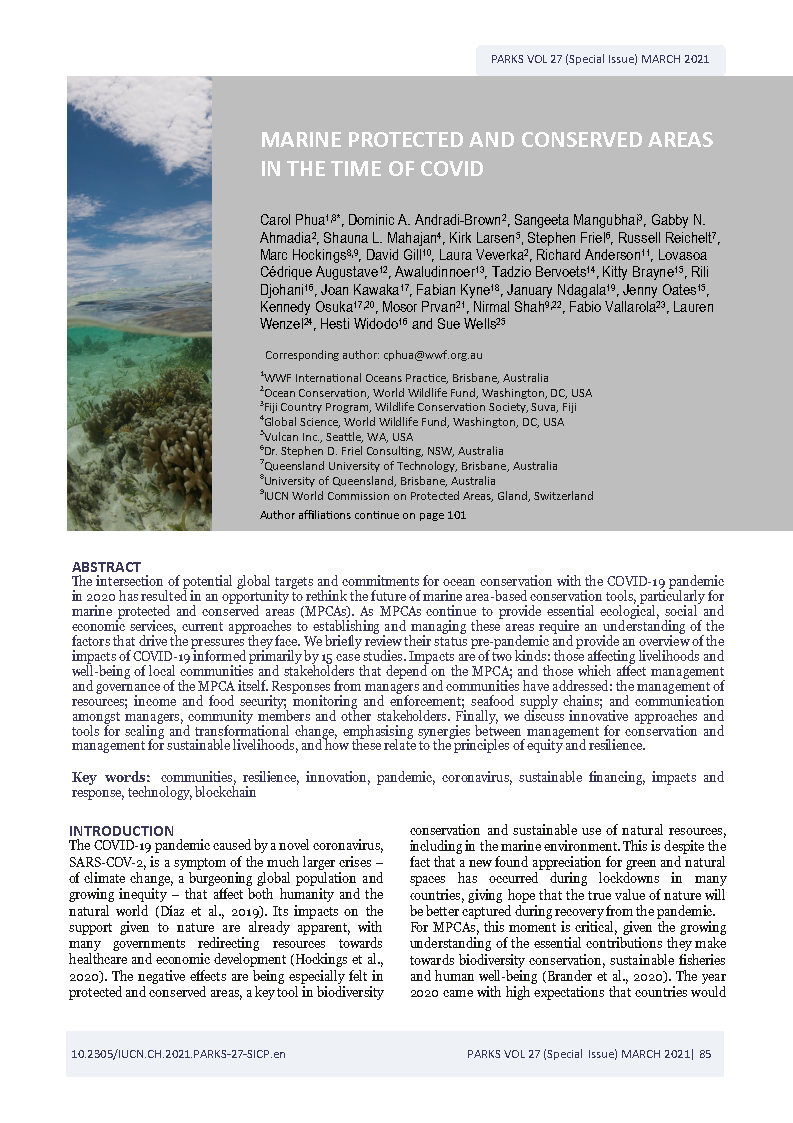 Marine Protected and Conserved Areas in the Time of COVID
Marine Protected and Conserved Areas in the Time of COVIDThis paper examines the future of Marine Protected and Conserved Areas (MPCAs) in light of global conservation goals and the COVID-19 pandemic. It reviews the status of MPCAs and, based on 15 case studies, details the dual impacts of the pandemic: 1) On the livelihoods and well-being of local communities; 2) On the management and governance of the MPCAs themselves. The paper outlines various responses to these challenges (including resource management, income security, and enforcement) and concludes by discussing innovative approaches for transformational change, emphasizing the need for synergy between conservation efforts and sustainable livelihoods, founded on principles of equity and resilience.
Year:
2021
-
 Management Effectiveness: Nusa Penida MPA in Authority Transition
Management Effectiveness: Nusa Penida MPA in Authority TransitionThis paper presents a qualitative case study on the Nusa Penida Marine Protected Area (MPA) in Bali Province, Indonesia, examining the changes in its management effectiveness during a governance transition from district to provincial management (2013–2017). The study used the Indonesia MPA Management Effectiveness Evaluation tool (launched in 2012) and collected data through observation, interviews, and documentation review.
Year:
2021
-
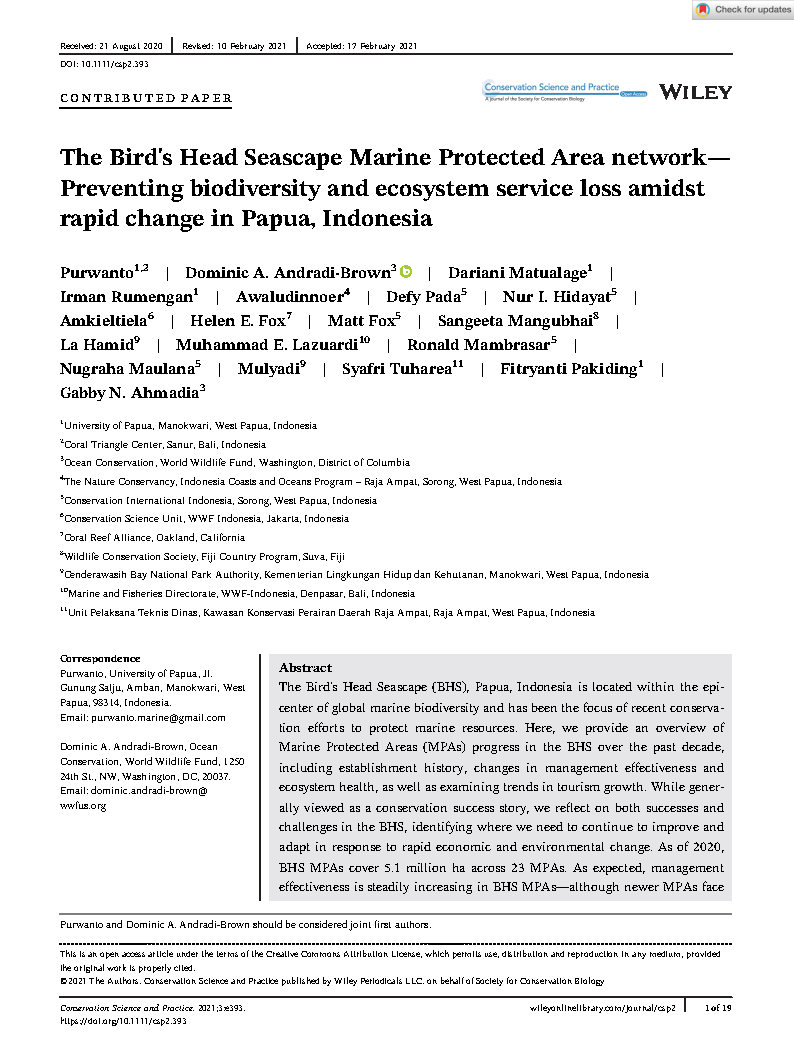 The Bird’s Head Seascape Marine Protected Area Network— Preventing Biodiversity and Ecosystem Service Loss Amidst Rapid Change in Papua, Indonesia
The Bird’s Head Seascape Marine Protected Area Network— Preventing Biodiversity and Ecosystem Service Loss Amidst Rapid Change in Papua, IndonesiaThis paper provides an overview of the progress and status of Marine Protected Areas (MPAs) in the Bird’s Head Seascape (BHS), Papua, Indonesia, which is the epicenter of global marine biodiversity. The paper reflects on the BHS as a conservation success story but highlights the need to adapt and improve in response to rapid economic and environmental change. It concludes that BHS MPAs are successfully preventing biodiversity loss while providing essential ecosystem services for local communities.
Year:
2021
No results found.